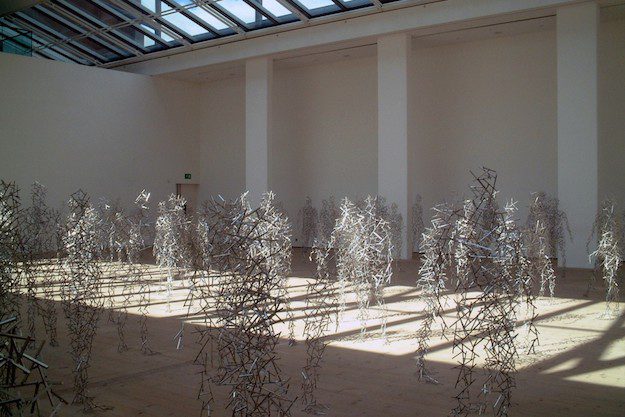But you are God’s chosen and special people. You are a group of royal priests and a holy nation. God has brought you out of darkness into his marvelous light. Now you must tell all the wonderful things he has done. The Scriptures say, “Once you were nobody. Now you are God’s people. At one time no one had mercy on you. Now God has treated you with kindness.” 1 Peter 2:9-10
I am not a biblical scholar or theologian. I’m a sociologically oriented social psychologist who studies evangelicalism. And yet even I can notice that there something profound in this passage from First Peter.
We are a priesthood.
It doesn’t say, “you will be lead by a priesthood“. The Levitical set-aside was replaced by a remarkably open democratic vision: you all are royal priests. You must testify as to what he has done. Because you are God’s people.
Too much of our discourse is caught up in various version of celebrity pundits: television commentators, religious bloggers, celebrity pastors, leaders of special interest groups (religious or political), politicians. What binds many of these together is that they deal in certainty. They know where their go-to positions are and will defend those against the go-to positions of opponents. My twitter feed is full of people aligning behind one position or another.
But you are God’s people. All of you. And you will tell your story. The story that you tell is far less likely to deal in certainty. It is likely to deal in messiness precisely because everyday life is messy.
Ed Stetzer of LifeWay Research had a good piece in Christianity Today in June. Titled Mission Trends: 4 Trends for Churches to Consider, he correctly identifies the impact of religious “nones” and that we are no longer living in an age of assumed Christianity. He distinguishes between three types of Christian commitment that he had unpacked in an earlier article: Cultural Christians, Congregational Christians, and Convictional Christians.
The first group are people who say they’re Christians because “that’s what people say in America“. It’s an identifier but doesn’t mean much more in terms of activity or theology than a zip code. Congregational Christians are those who look at the church ceremonially. The church is a place for baptisms and weddings or celebration of holidays like Easter and Christmas. The third group, Convictional Christians, are people who “orient their life around their faith in Christ“.
Convictional Christians are surely a Holy Priesthood.
While I like Ed’s categories, they’ve been used in ways that too often paint mainline churches as Congregational Christians and Evangelicals as Convictional Christians. I find this at odds with both data and experience. It is more correct to think of Congregational Christians as showing up in all churches (that’s why we need the extra chairs at Easter). Secondly, I feel like the use of the word “Convictional” is overly strong. The orienting around faith in Jesus isn’t just about having convictions.
I’d prefer the term Confessing Christians. People who find ways of telling their faith story with integrity and personal meaning.
I think that the priesthood of believers go about their orientation is very uncertain ways. That’s why sociologists like Christian Smith have written so much about Moralistic Therapeutic Deism. People in churches incorporate lots of different ideas into their telling what God has done. It can even look like what Robert Bellah named “Sheilaism” after the woman who took an eclectic approach to religious orientation.
At the end of the day, Confessing Christians are pragmatists. They are looking to make sense of faith in the midst of their very complex lives. When they learn that a nephew has come out as gay, they have to try to make that fit into their previous understandings of faith. In all likelihood, they will wind up simply living with the disconnect between their view of scripture and their love and concern for the nephew. Either-or choices only work for political and religious pundits.
People who face these changes will suffer some form of cognitive dissonance. They will have to confront the gap between their past beliefs and their new realities. According to Leon Festinger, they will either a) hold to the past belief, b) adopt the new behavior, or c) add some third element to resolve the dissonance.
But the resolution isn’t as difficult for those who haven’t invested their identity in hard and fast positions. Those who have oriented their lives around Jesus take a more eclectic view.They are far quicker to adjust to new situations like same-sex marriage, the rise of the nones, or policies based on secular instead of religious rationale. Because they are really concerned first about living lives of faithful witness.
Sure, they may “like” a Facebook page that takes a hard stand but this may have little more meaning to them than loving a USA World Cup win or liking Father’s Day posts or quizzes about which Game of Thrones character you are.
We are the priesthood of believers. The Holy Spirit is working in our midst as he did with those two walking on the Emmaus road. We will tell God’s story.
If we’d all listen a little more to the Priesthood and a little less to those in Power, we might have a better sense of where the Spirit is leading us.
—
[Image by Fuad Al Ansari, CC via Flickr]













